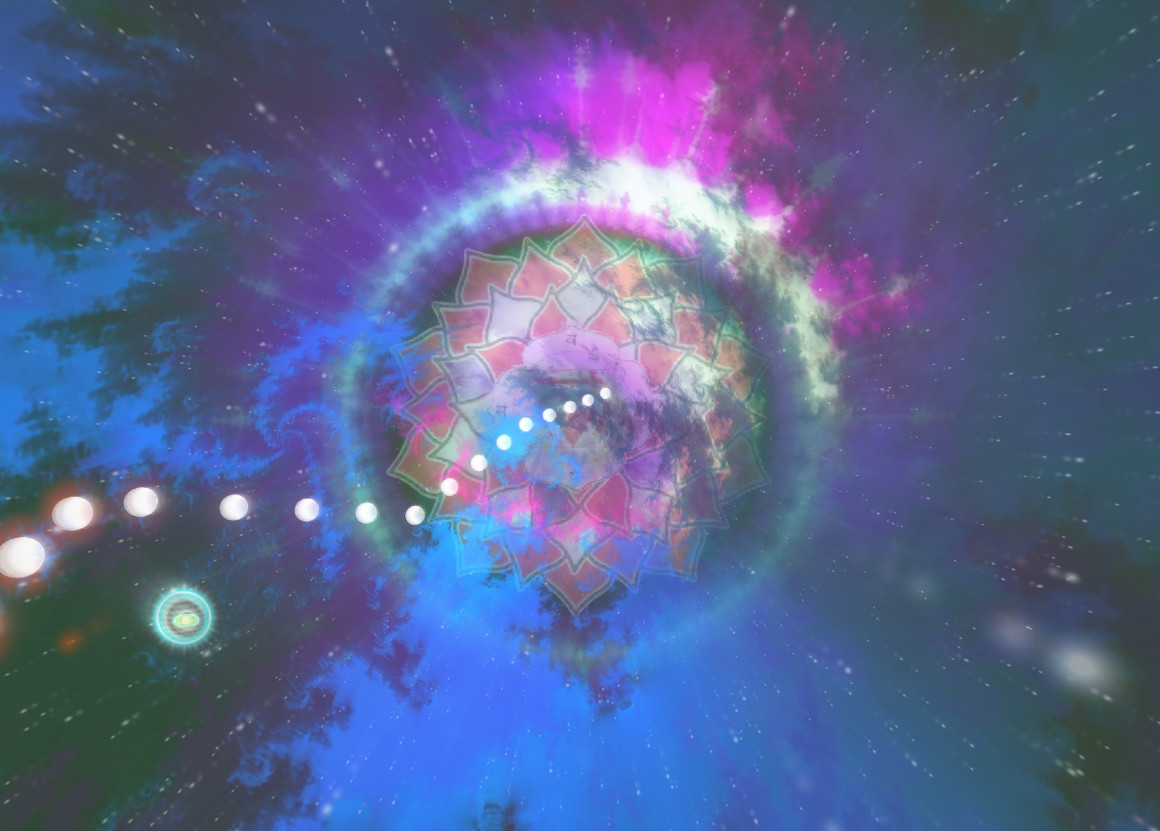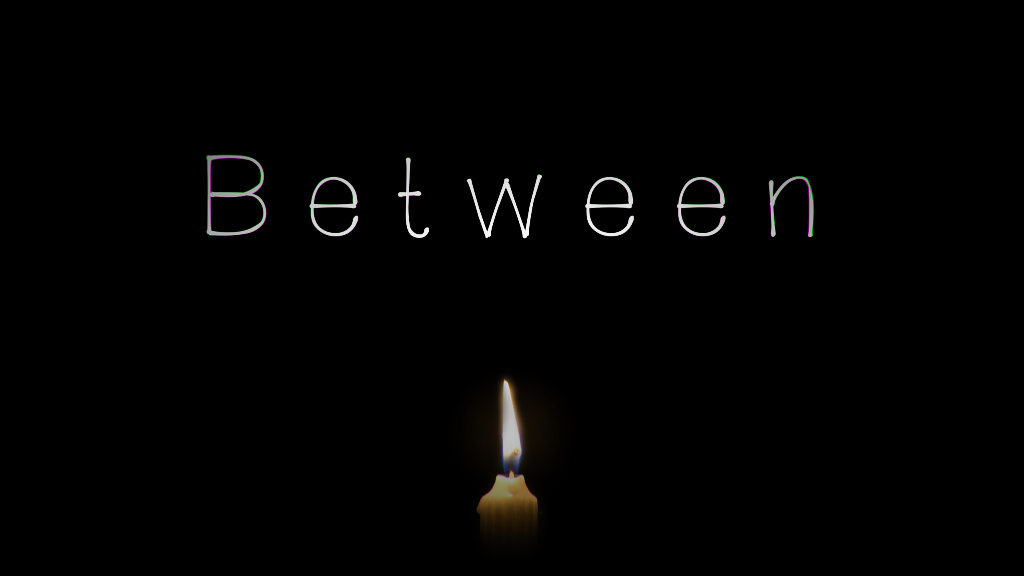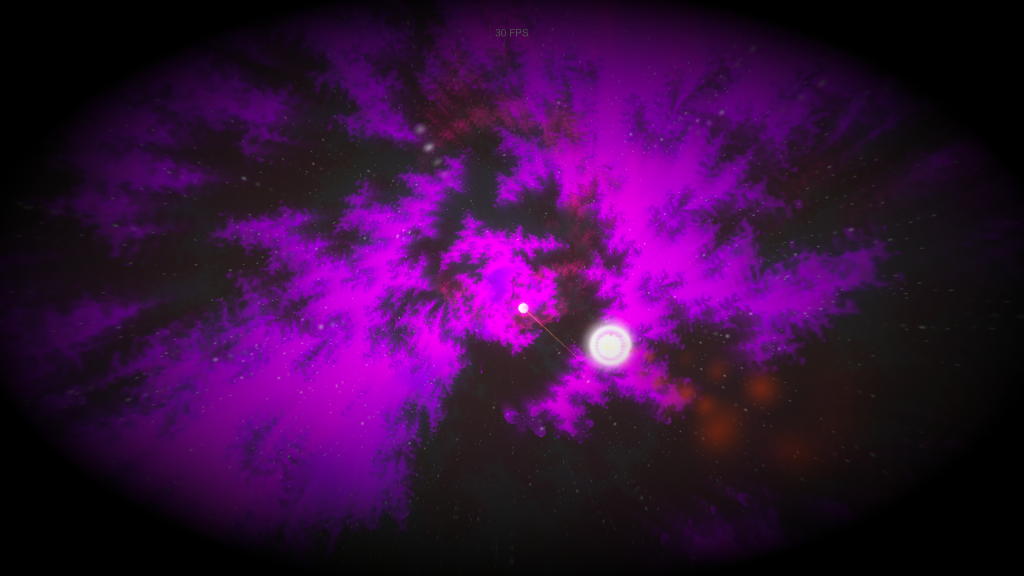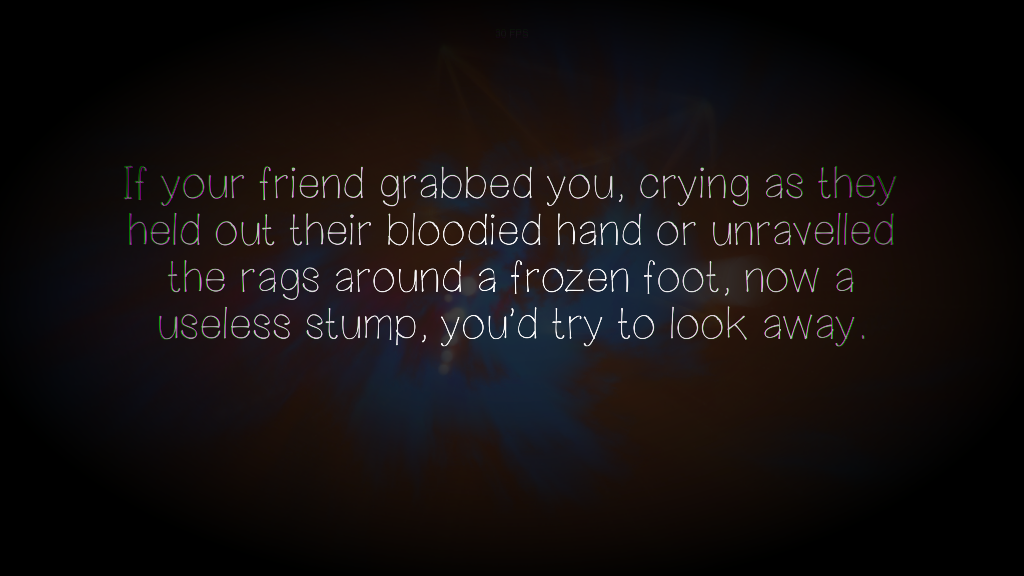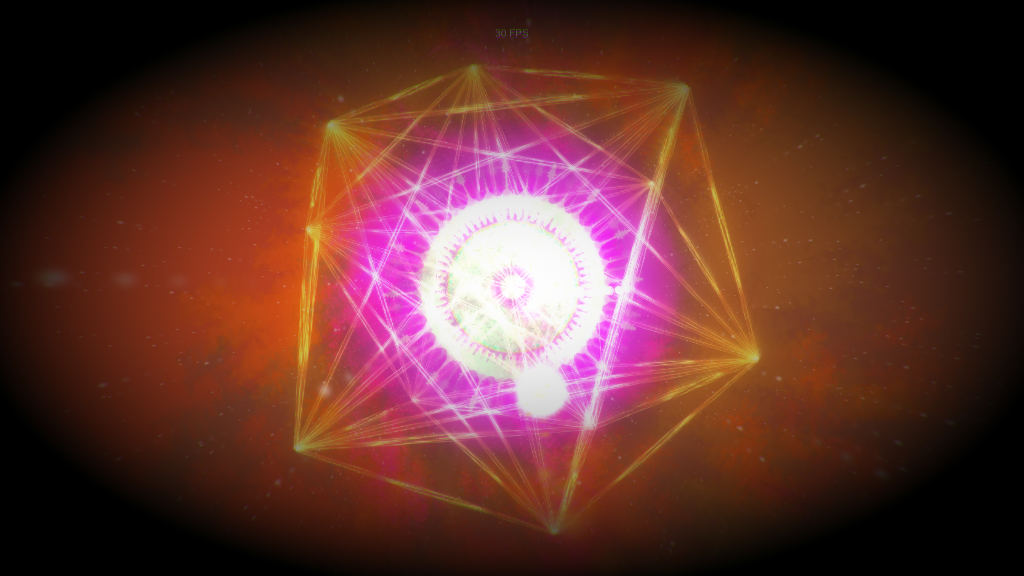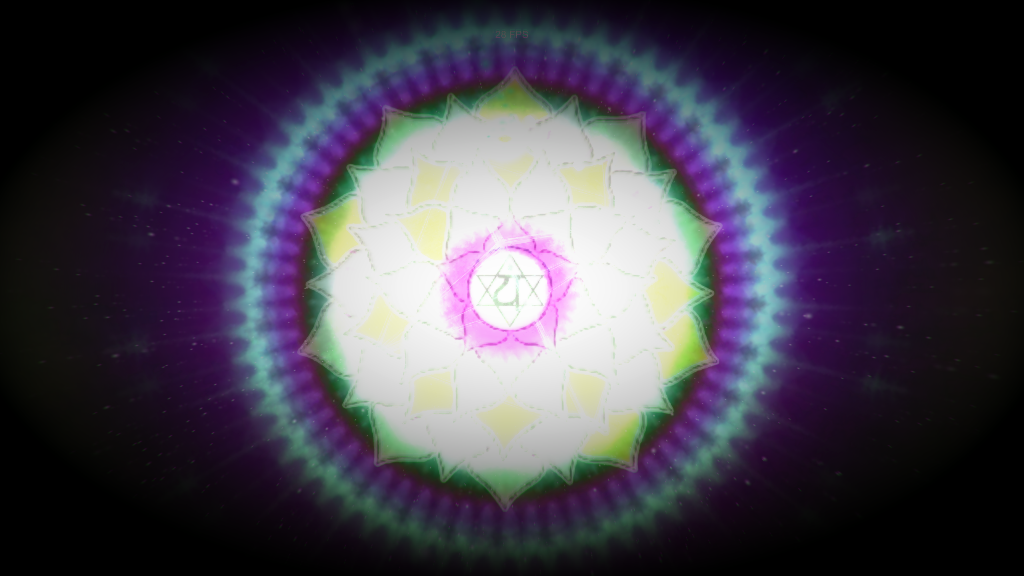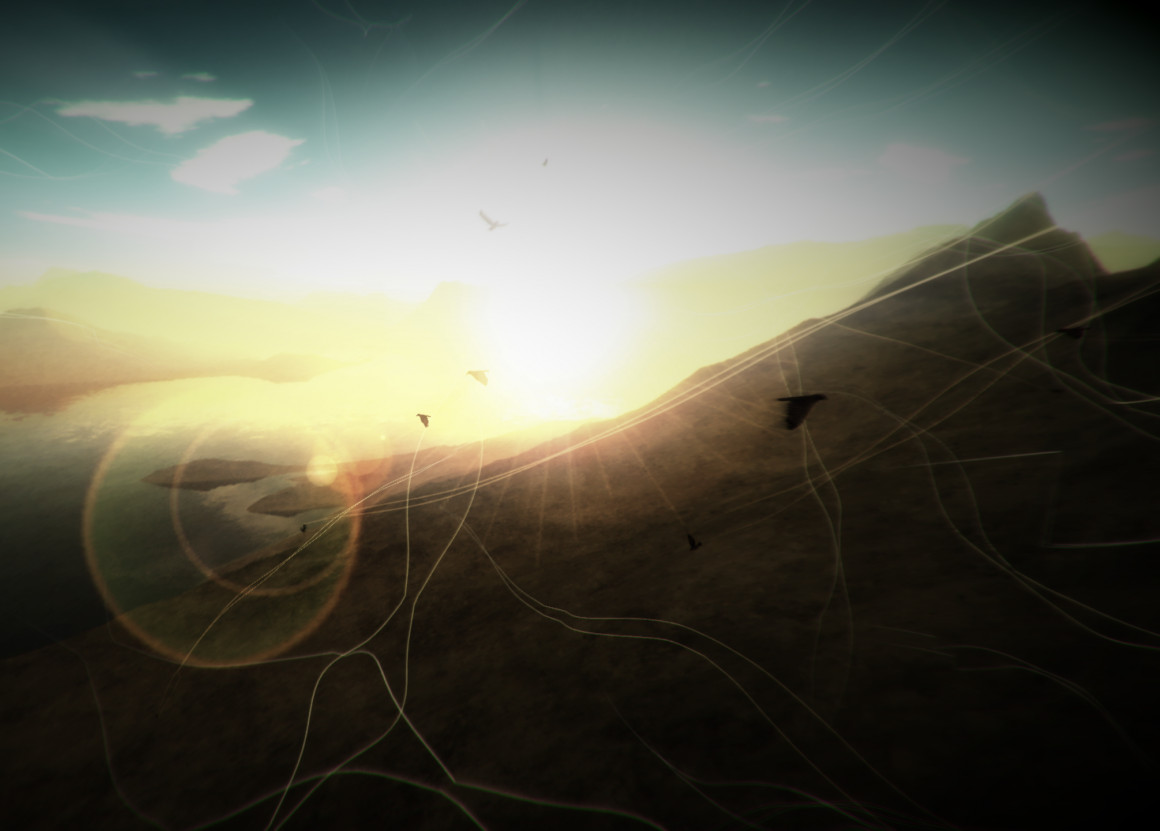Points of light float towards the player in a patterned movement. The player stands in front of the piece holding a PS Move controller (a small baton illuminated at one end to act as a computer vision tracking beacon) which controls the movement of an eye-like glowing avatar on screen. The player’s goal is to move the avatar in line with the on coming points of light and collect as many of them as possible. As the player collects them, a narrative starts to unfold verbally.
The theme of the piece relates to the concept of reincarnation and thus the narrative follows the story of a character’s life, highlighting a key moment from their experience as a human. At several gameplay thresholds (or levels), the player is confronted by a large rotating geometric shape which they must pass through. If the player has successfully collected enough light, they will pass through the shape into the next level where the process continues. The light is symbolic of forgiveness, harbouring the idea that souls will repeat their journey’s through the earth plane learning lessons and letting go of their pent up karma. Each level is symbolic of a different chakra being represented by the colours, sonic palette, and narrative theme.
If the player fails to collect enough light to pass through any of the seven levels, they are returned to the beginning of the experience but with a different narrative signifying that the soul has gone back to the earth plane, lived another life and is now attempting ascendance again.
The piece was originally developed as an installation exhibited in Sweden and Denmark with the visuals projected onto a large screen and participants standing before it, their movements being tracked by a PS Move tracking system. A later version of the project was done in VR.
We’ve been porting Between over to the Oculus Rift recently (WIP):
